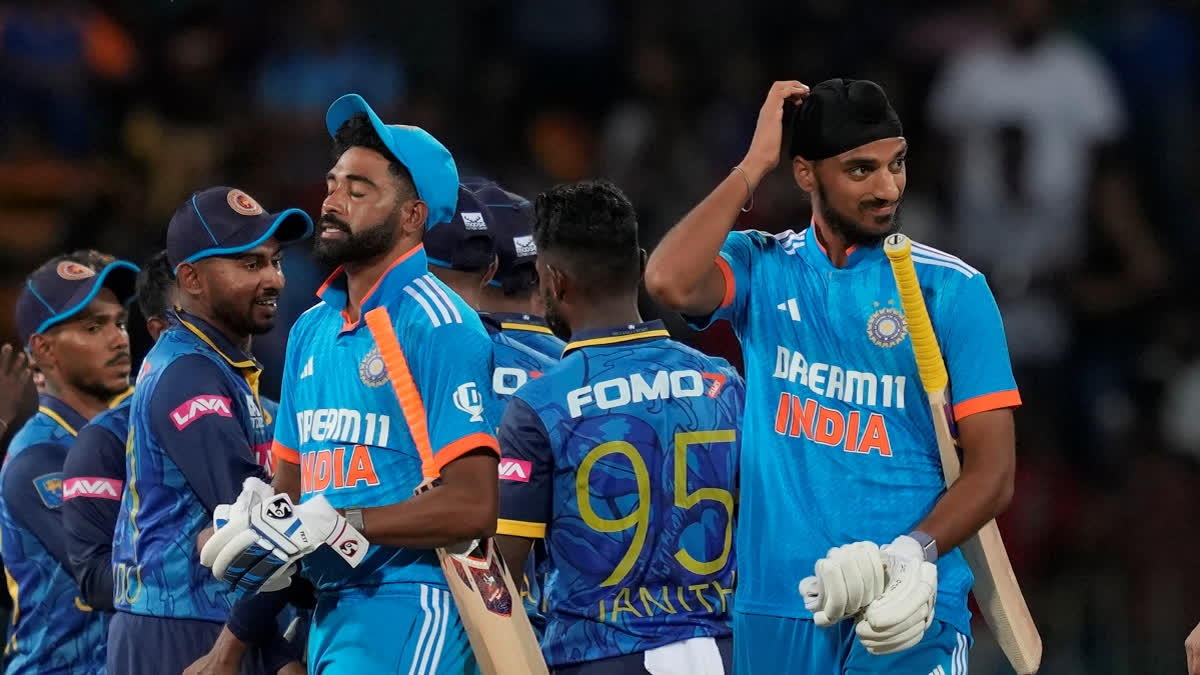Colombo (Sri Lanka): The first ODI between India and Sri Lanka played at the R. Premadasa Stadium in Colombo ended in a tie after both teams scored 230. However, the hosts would have thought they made the match out of nowhere. Many sports enthusiasts are wondering why there was no Super Over in the first ODI, similar to the third T20I between India and Sri Lanka which was played in Pallekele.
India played their 10th tie match that propelled India to become a team to play the second most tie games in one-day international history after West Indies. Windies have played 11 ties, one more than India.
As per the ICC rules, if any T20 International encounter ends as a tie in any tournament or even bilateral series, then there is a provision for Super Over. However, similar is not the case in ODI cricket. unless it is the tournament's knockout game. If it happens in a tournament, both teams share the points while the result is carried as it is in bilaterals.
In the history of ODI cricket, the Super Over has only been used in three matches so far. The most memorable one was the 2019 World Cup final between England and New Zealand. In that match, the Super Over was also tied, and the result was determined by the number of boundaries scored. Additionally, in 2020, a Super Over was played in the match between Zimbabwe and Pakistan. Then, in 2023, during the ICC Cricket World Cup 2023 Qualifier, a Super Over was played in the ODI match between West Indies and the Netherlands.
Things went down to the wire in Colombo as the match ends in a tie!
— BCCI (@BCCI) August 2, 2024
On to the next one.
Scorecard ▶️ https://t.co/4fYsNEzggf#TeamIndia | #SLvIND pic.twitter.com/yzhxoyaaet
Coming to the match, in reply to Sri Lanka's 231, India had a good start. The openers added 75 runs for the first wicket with captain Rohit Sharma smashing a quickfire half-century, showing the same intent he displayed in the 2023 ODI World Cup. When Rohit walked back to the pavilion, the score was 75 in 12.4 overs and it looked like India would easily chase down the target. But then India lost wickets on regular intervals as India were reeling at 132/5 at one stage.
In the end, India needed just 5 runs from 18 balls to win with two wickets in hand and Dube being the recognised batter was present at the crease. After playing two dots against part-time off-spinner Charith Asalnanka, Dubey hit a four on the third ball to level the scores. But then, the Sri Lankan captain bowled two tossed-up deliveries and trapped Dube and southpaw Arshdeep Singh in front of the stumps and snatched the victory from the jaws of defeat for his country.



